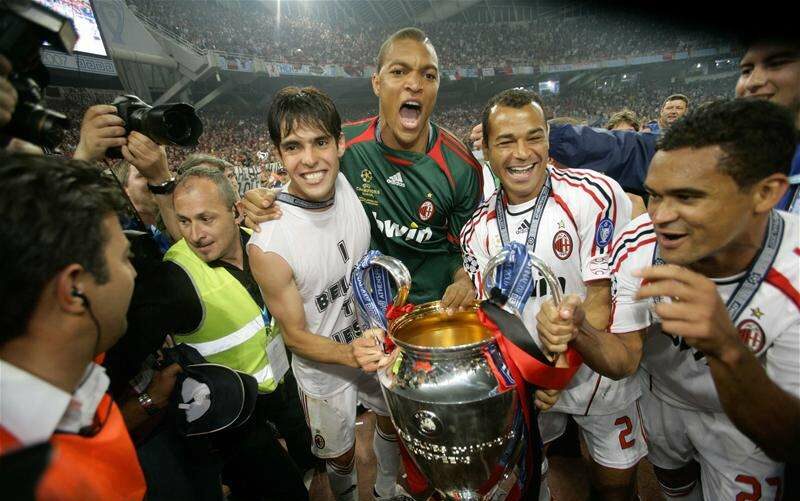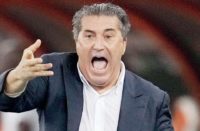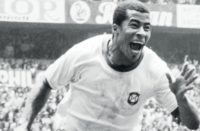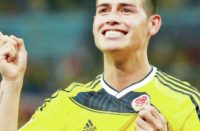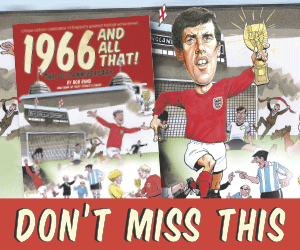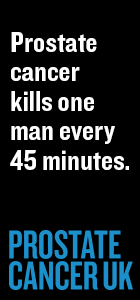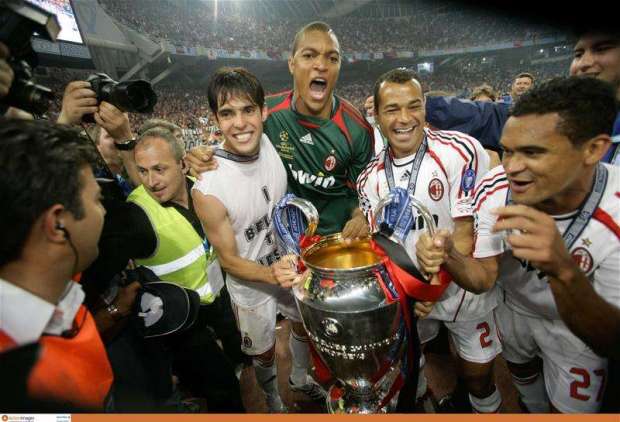 Liam Flin takes a look at some European clubs who are failing to punch their weight after falling on hard times…
Liam Flin takes a look at some European clubs who are failing to punch their weight after falling on hard times…
To grace the pinnacle of the footballing world for a season or two is one thing, but for a club to affirm pure legendary status, it’s maintaining that consistency and quality which counts.
You’ve seen it on more than one occasion; acute business in the transfer market coupled with sharpened tactical nous can lift a club beyond expectation and to the top of the table.
Give it a few seasons though and they’re scrambling around in a relegation dogfight – in many respects, this is what renders football the marvellous game it is.
Comparatively, there are sides who boast rich histories and an array of league and cup triumphs, but who have fallen behind in recent years, whether it be down to inferior financial power or a string of lacklustre managerial appointments.
For fans of these teams, this can be difficult. Your club is forgotten and all you can do is ponder about what might have been. Dancing with mediocrity, your side, once world-beaters, now lingers around mid-table, drained of aspirations.
So, as a testament to those supporters who have stuck with their clubs through the good and bad, here’s a look at the continent’s most apparent sleeping giants…
Newcastle United
One of the most prestigious outfits never to win the Premier League, the Magpies were once a resounding force in English football, but have fallen short of expectation in recent years.
You may be surprised to know Newcastle were not a part of the original Premier League crop, but they romped to an eight-point Division One title triumph in the 1992/93 season.
Following their promotion, the Tyneside club showed no signs of slowing up. Andy Cole’s impressive tally of 34 league goals helped guide United to a third- place finish upon their return to the top-flight and, in doing so, secured European qualification.
The remainder of the decade would provide the most significant highs and lows, perhaps, in the club’s history. Newcastle finished runners-up to Sir Alex Ferguson’s Manchester United in 1996, despite having racked up a 12-point-lead that January courtesy of an explosive start. Many feel this is where the beginning of the club’s decline can be pinpointed – had the team gone on to win the Premiership that campaign, who knows what fortunes it could have led them to domestically and across the continent.
Nonetheless, despite mirroring said second-place finish the following season, the prickly, yet effective, Kevin Keegan bid farewell to his beloved Magpies and, ever since, few managers have been able to emulate their league heroics. Bobby Robson’s tenure showed glimpses of igniting the Newcastle flame once more but, since relegation to England’s second tier back in 2009, the club from Tyneside have lacked the tools to rebuild themselves and can now be found stranded in the depths of the Premier League.
Athletic Bilbao
Spanish title victors on eight occasions, Athletic Bilbao bear a modest, albeit under-rated history. Along with Real Madrid and Barcelona, Los Leones are one of three sides never to be relegated from Spain’s top-flight. They may have captivated a continental audience with their continually breathtaking displays on the Europa League stage, but the Basque club are still a long way off the double-winning side of 1984, the last time they lifted the title.
In the seasons prior to the Spanish civil war, Bilbao won four league titles in no more than seven years – a remarkable feat and perhaps an indication that this was the club’s most successful patch in their history. Blessed with the goal-scoring prowess of Guillermo Gorostiza at the time, one of the earliest recognizable Basque talents, Club Athletic were, and always have been, a club assembled solely of players from this region. It’s a policy that still exists today and, although it’s one praised highly by most, it’s had its fair share of critics.
Bilbao have therefore been restricted to a limited pool of players from which they can choose and this may very well have acted as the greatest strain on their development as a club. With regard to their short-term history, league finishes have fluctuated. Since the turn of the century, the club have finished anywhere from 15th to fourth. Marcelo Bielsa, thought to be a pioneer of the ‘tiki-taka’ evolution, led the club to two cup finals in his first season at the helm, but was shown the exit door after some poor league finishes. Ernesto Valverde injected life back into Athletic, whose namesake could now not be more appropriate. Revitalised with a game-plan focused around resilient work ethic and intense pressing, Bilbao qualified for the Champions League in 2014, but fell short last campaign. La Liga is getting stronger by the second and Athletic may have to find a new way to rebuild if they are to put an end to their 31-year title drought.
AC Milan/ Inter Milan
The respective declines of both parties have been equally as great. Let us firstly take a look at AC Milan.
Rijkaard. Van Basten. Gullit. Maldini. An eye-watering quartet of talents who once composed the foundations of Milan’s whirlwind side of the 1990s; a decade that witnessed the remarkable achievement of four league titles in a five-year span, in which the Rossoneri made the Champions League final on two occasions, winning it in 1994. So what prompted the collapse from such grace to a side now downsized to mid-table candidates?
Stripped of their blockbuster backbone in 2012, when both Thiago Silva and Zlatan Ibrahimovic made the transition to the French capital, the grand losses of the club’s parent company FinInvest earlier this decade began to morph Milan into a selling club.
Some years before the Silva-Ibra double deal, Kaka left for a bumper fee, while a slew of legends slipped through the Rossoneri’s fingers, with Gattuso, Inzaghi, Nesta, Seedorf and van Bommel all parting company. More frustrating than the exodus for the Milan faithful though was the inherent lack of urgency to fill the series of gaping holes. Club captain Riccardo Montolivo himself claimed: “None of us draw comparisons with the past,” when discussing the current squad in contrast to the legends of old.
Even with the recent reluctance to spend somewhat muted by a splurge of signings this past summer, the more disillusioned football fans would argue the team lacks a household name – and they’d be right. AC Milan should look to keep tabs on their bigger names now and continue to buy, not sell, because for the moment they are a mere shadow of their former selves, but misery loves company and the reciprocating decline of bitter rivals Inter will go some way to softening the blow.
Cast your minds back to 2010, Diego Milito’s brace in the Champions league final against Bayern Munich confirmed the Nerazzurri would become the first Italian side to win the treble. Moreover, the club had just won their fifth Scudetto (Serie A title) on the trot. Looking back, I still feel Inter’s precedence at the top of the Italian footballing ladder was inevitably no more than a brief spring to the dizzy heights of footballing royalty. The squad was ageing and the perpetrator of the illustrious treble, José Mourinho, was never one for hanging around. Along with these factors, owner Massimo Moratti lacked the funds to re-build the squad and with the likes of Javier Zanetti, Wesley Sneijder, Milito and, later, Samuel Eto’o all moving on, replacements of such standard were next to impossible to land with such a stretched budget. Now, despite a positive start to the 2015/16 season, the thought of Inter, or either half of Milan for that matter, sending shockwaves across Europe seems laughable.
Olympique de Marseille
There may have been an 18-year gap between Marseille’s last Ligue 1 title in 2010 and the one before that but the saddening truth for Les Phocéens is the wait for the next one could be an awful lot longer. Imposed relegation to France’s second tier in 1994, by virtue of club president Bernard Tapie’s involvement in match-fixing scandals, followed the most successful spell in the club’s recent history.
As with the majority of teams on this list, it was the early 90s where Marseille flourished. Boasting players of formidable pedigree such as Didier Deschamps, Eric Cantona, Marcel Desailly, Fabien Barthez and Chris Waddle, the club won four consecutive titles between 1989 and 1992. Despite the phenomenal Champions League title win in 1993, the questions surrounding various financial enigmas at the club had their consequences and the eventual drop to the second division took its toll.
The next 20-or-so years were peppered with sparks of success from the French side, who were runners-up in the 2004 UEFA Cup, losing to Valencia in the final.
Since lifting their ninth Ligue 1 honour in 2010, the club have fallen victim to PSG’s financial metamorphosis. The club from the capital, along with Monaco, have seen their big wallet propel them to supersede Marseille as arguably one of the best teams in France, leaving little space for Les Olympiens to compete.

